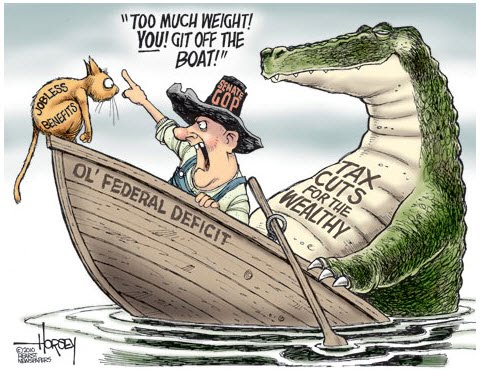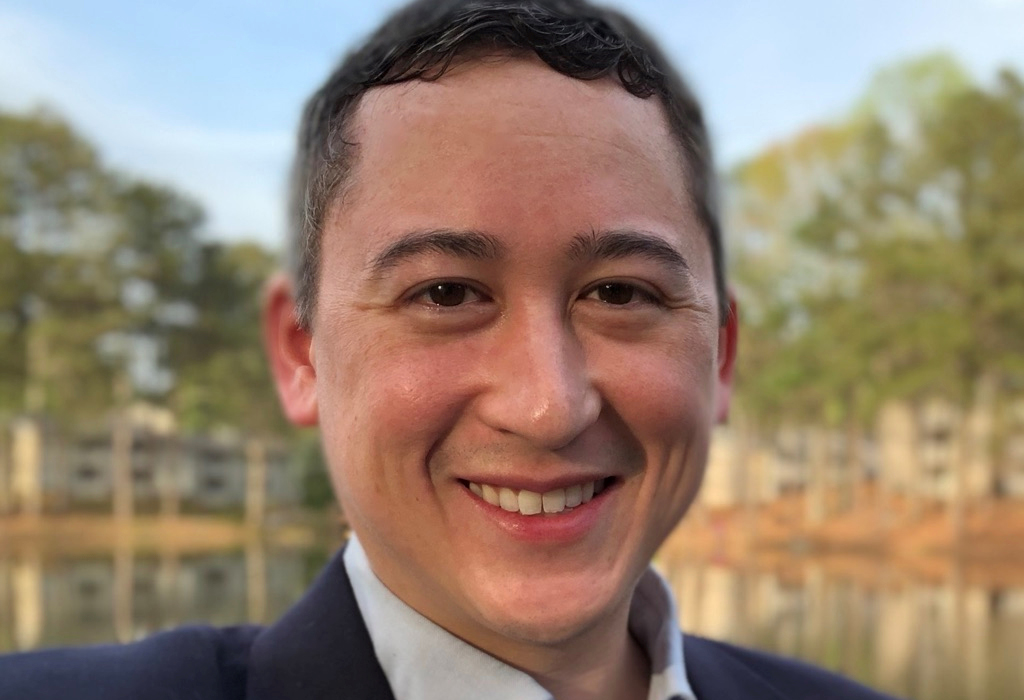httpv://www.youtube.com/watch?v=Hd8MFmUDbg4
President Barack Obama was elected four years ago in a landslide of optimism for the future. He won the most presidential votes in U.S. history, galvanizing young voters, minority voters, women and independents to his cause. He inspired us with words of hope and change; these words resonated in a country mired by two wars and a mounting economic disaster. He challenged us to believe in a brighter future.
Four years ago, I helped to elect President Obama. I helped establish my local chapter of Obama for America, and later took my efforts nationally (and into the blogosphere) as a participant in the online Asian Americans for Obama movement. I traveled to Las Vegas, Nevada, to canvass for President Obama and volunteer at the caucuses. And above all, I told everyone and anyone who would listen why I — a Canadian without the power to vote in that election — was working tirelessly for this candidate for the presidency of my adopted home. I did it all because I am not an American, and because my children likely will be.
Four years later, and President Obama struggles with approval ratings in the mid- to low- forties. His re-election is in question.
Four years ago, I helped to elect President Obama. And four years later, I still support the president. Here’s why.
Healthcare Reform
I remember when I first moved to the U.S. from Canada. I was completely overwhelmed by healthcare in America. I didn’t know (and still don’t really know) the differences between an HMO and that other thing.

I didn’t know what premiums or co-pays were, didn’t appreciate opt-in and opt-out windows, and had no earthly clue how to determine whether or not a medical care provider was part of my network. I solved this problem in the single worst way possible: I just didn’t go to the doctor. I maintained my insurance only because I was mandated to have coverage as part of my presence in the country as a foreigner.
Thus, I’m one of the first to tout the virtues of single payer healthcare. I’m used to the benefits of the system; wherein the only thing I hand over during a doctor’s visit is my national health card, wherein everyone — rich or poor, employed or unemployed — is covered, wherein I’m free to pick a doctor based on characteristics other than whether or not they are part of my network, and wherein the first concern when someone is ill (acutely or chronically) is making them better.
America is long overdue for a healthcare system like this: one that actually prioritizes the patient.
Look, there’s plenty about the Affordable Care Act to not like, not the least of which is the power the Act gives to private insurance companies by mandating the purchase of health insurance. But, as we saw in the Clinton era, healthcare reform is the third rail of politics in this country. In the immortal words of Vice President Joe Biden, the Affordable Care Act was a “big fucking deal” for one important reason: it was healthcare reform.
Unlike many of President Obama’s predecessors, healthcare reform has been virtually impossible in this country, and has only seemed less likely in the partisan environment of the last few decades. Democrats and progressives like myself recognize the need in this country for single-payer healthcare, but unlike many Democrats and progressives, I simply don’t believe this country is ready to completely dismantle the private healthcare industry for sweeping reform and implementation of universal healthcare. The problem is simple: Americans, currently, just don’t believe that healthcare is a fundamental right. Americans believe that healthcare, like owning a house or a car or going to college, is a privilege reserved for people who can afford it. Americans have bought so deeply into the American notion of pulling oneself up by one’s bootstraps, that they fundamentally believe that people who don’t have health insurance actually don’t deserve healthcare — even if that includes themselves.
For all the problems that the Affordable Care Act may create (and my friends in Masssachusettes can speak to these potential concerns in reference to what Romneycare has done after nearly a decade of being in place in that state), the Affordable Care Act is a step in the right direction because it increases healthcare coverage for millions of uninsured and underinsured Americans, and it prevents insurance companies from denying coverage based on the arbitrary basis of “pre-existing conditions”. And more fundamentally, it is based on the singular notion that healthcare is a right, not a privilege.
Institutional change doesn’t come over-night. In America, the road to single-payer healthcare is a multi-step process; I fundamentally believe that the Affordable Care Act is a critical first step in convincing Americans that they have both the right and the need to advocate their political leaders for better healthcare. Only with this mindset change — one that Americans are currently only beginning to adopt — will there be the political will to institute more sweeping healthcare reform required to implement universal healthcare. Perhaps it will take twenty years, perhaps longer. Perhaps I will not see single-payer healthcare in America within my lifetime. But I believe that, with the passage of the Affordable Care Act, an American healthcare system that ensures healthcare for everyone is now within the realm of possibility for my children.
And that’s worth four more years.
Middle-Class Tax Cuts

Without putting a number on it, I confess that my annual income only barely qualifies me as “middle class” (although my education level and earning potential helps push me over the edge). I pay rent and bike to work in part to minimize my gas bill, and yet I still live paycheck-to-paycheck.
Look: as a left-wing progressive, I have no problem with paying taxes. I believe in the common good, and I believe that taxes are a necessary responsibility for membership in this society. I believe that my tax money pays for important public services that I either use now, or may use one day, or that simply make this country better for myself and for others. I give up my taxes willingly, and I do not begrudge where they go.
But, as I’ve grown older, I’ve come to also appreciate the burden of paying taxes. I’ve mourned the percentage of my income withheld from my salary every month, and fantasized about how that money could instead be used to get my car fixed, buy groceries, or help pay down the debt accrued during my time as a graduate student. Tax payments are not easy for me, and I could easily use the money that I instead surrender to the federal and state government.
We are all beneficiaries of this America. When we succeed, we succeed together, and when we fail, we all feel the pain; taxes are part of the social contract that allow us to participate in this great American Dream. So, why then do we permit those who have most benefited from that contract to give the least back to it? I have no problem paying my taxes, but I do have a problem with the idea that the same people who can most afford to pay taxes are the same people who are allowed to pay the least.
President Obama has committed his administration to ending tax cuts for those wealthy enough to simply not need a tax cut — those making more than a quarter million dollars a year. He has then turned around and passed those savings on to those of us who need a little tax relief — middle-class families who are happy to pay our taxes but who could use some of that money to help make ends meet. Yes, this is a re-commitment to a progressive tax code, but more fundamentally it’s a re-commitment to the singular notion: we are all in this together. We have a responsibility not just to ourselves, but to our neighbours. We are our brothers’ keepers, and that common greatness requires common sacrifice. That is the vision of America that our children deserve.
And that’s worth four more years.
DREAMers, Deportation and Immigration Reform
As a Canadian living in the U.S., I am perhaps most affected by the U.S. federal governments policies over immigration. Unlike the average American, I have been forced through my time in America to become intimately familiar with U.S. immigration law. My presence in this country has depended upon having the right pieces of paper stamped by the right people at the right time: forms referred to by an incomprehensible string of letters and numbers are my lifeline to this country, and I still live with the very real concern that, at any moment, those papers could be revoked and I could be asked to leave.
The thing about America’s immigration system is that those who talk about it the most on television are also the folks who have the least interaction with it. Those who defend it often have no idea how it is broken, and those who demand its demolition often fail to recognize why this country’s immigration policies are in place.
Here’s the fundamental truth, recognized by most legal immigrants: being in this country is a privilege, not a right.
While I believe that the food, education, healthcare, and economic opportunity are basic human rights that we should strive to achieve for all humans, illegal immigrants have no more right to defy American immigration law to obtain those benefits than do I have the right to break into my neighbour’s kitchen and take his food (and perhaps do a few chores for him) because my own refrigerator is empty. If I am hungry, I should urge my neighbour to open his doors to me, but I cannot defend the act of taking what is his without consent.

Yet, like it or not, this is exactly what undocumented immigrants do when they bypass this country’s laws and enter or remain in this country without legal status. Let me be clear: undocumented immigrants are not villains. They deserve neither xenophobia, nor intolerance, nor racism, nor scape-goating. They are neither “a drain on the system” nor all drug dealers and violent criminals, as Republicans generally claim.
But, we must face facts from both sides of the aisle: our immigration system is broken so long as it remains easier to enter or stay in this country illegally than to obtain or maintain legal immigrant status. While I don’t support a concerted (and costly) effort to try and deport every illegal immigrant en masse as is suggested by some Tea Party extremists, nor do I think that the rational alternative for progressives is to decry all forms of deportation when, through the normal course of ICE investigation, an immigrant is found to not be in legal status.
The Obama administration has been criticized from the Left for having achieved record numbers of deportations in the past four years. But, I confess: I am simply unable to rationalize why I should be critical of President Obama for this fact. Why should valid deportation procedures be halted? Because the deportees are here? Because they are people of colour? None of this invalidates the basic point: legitimate deportations occur when an immigrant has broken U.S. immigration law. No matter how nice the deportee is, this is a clear disrespect to the laws of the host country, and to the millions of legal immigrants like myself who are playing by the rules to be here legally.
No matter what country you are trying to enter, it is the responsibility of the immigrant — not the host country — to maintain an immigrant’s legal status; because, again, being here is a privilege, not a right. Further, don’t let anyone fool you: maintaining your legal status is not easy. It’s actually a lot of work, and often times (given the requirements to justify entry and the long turn-around for various papers to be processed) seemingly impossible. Which is why (and I sincerely empathize with this), there are those who feel they have no choice but to enter or stay in this country illegally.
Deportations target these immigrants — these folks who have either never had legal status, or whose legal status has been allowed to lapse. Progressives have lamented that deportations as targeting “otherwise law-abiding illegal immigrants“. But, and rightly so, deportation in this case has nothing to do with violations (or othrewise) of criminal law; instead, it is a response to how illegal immigrants circumnavigated immigration laws of this country. If I break into my neighbour’s house, I have still committed a B&E (and can be asked to leave) even if I broke in to do the dishes.
Unlike some Republicans (particularly those situated along this nation’s Southern border), President Obama has tackled immigration not with racial bigotry and hatred. His administration’s record-high deportation numbers may affect the Latino (and Asian) population moreso than others. But unlike Republicans, President Obama is not waging a war against Latinos (or Asians). He has emphasized deportation as a response to an immigrant’s illegal actions, and not with the colour of his skin. Illegal immigrants are being deported not as a form of exclusion, but as a necessary first step in encouraging the deportee to re-enter the country legally in recognition of the countless immigrants and hopeful immigrants who are currently waiting in line to enter and stay in this country legally.
This is about changing the tone of the debate to one of personal responsibility and personal consequences: the deliberate act of breaking the laws of this country should comes with it the real possibility of facing the punishment. To emphasize this point, President Obama also established that his administration would halt the deportation of young immigrants, who were brought to this country illegally and without their own consent. These so-called DREAMers are illegal immigrants, but did not choose to break this country’s laws: thus, the president has rightly decided that these young undocumented immigrants should not be treated in the same manner as those who made the choice to put themselves outside of American law.
America is at the cusp of a major political debate over immigration reform — one that is likely to span the coming decade. While I am disappointed that comprehensive immigration reform wasn’t a significant part of the president’s first term in office, I am confident that it will be part of the president’s second term — simply because it must be. President Obama has laid the groundwork for that debate: like me, he understands that immigration reform requires both that legal status be easier to obtain, and that illegal status be harder to maintain.
In short, with the limited steps that President Obama has taken in regards to the immigration debate in this country, he has signaled a shift in focus: away from the racist rhetoric of the Right-wing, and towards an open doors immigration policy that encourages immigrants to be law-abiding and productive members of this society before (and not just after) they enter this country. President Obama has rejected the tenor of the debate previously set by the nativist sentiment rampant in the Southwest and throughout the ranks of the Tea Party, and has instead emphasized a measured, rationale and tolerant attitude that welcomes intelligent and hard-working immigrants who can only serve to enrich this great American tapestry, and that will only continue to do so in coming generations.
And that’s worth another four years.
Don’t Ask, Don’t Tell

Speaking of intolerance, President Obama struck another blow against bigotry and hatred with his elimination of Don’t Ask, Don’t Tell, a military policy that allowed gay servicemen to serve so long as they didn’t do so openly; DADT also allowed thousands of gay servicemen to be dishonourably discharged (during a time when military recruitment is at demoralizing low) based solely on the “crime” of being gay.
While the ending of DADT is only one facet in this nation’s struggle for gay rights (and there’s so much more left to do), it was an important symbol to all Americans: hatred — of a person’s race, of a person’s gender, or of a person’s sexuality — has no place in a modern America. Hatred will no longer be a protected institution in this country. Hatred is out-moded, out-dated, and irrelevant. We will no longer ask a man or woman to die for America, while not being willing to accept how that man or woman lives in it.
And that’s worth another four years.
The Audacity to Believe
Call me naive. Call me an optimist. Call me crazy. But, I still believe. I still believe that under an Obama presidency, tomorrow will be better than today. I believe that under President Obama, the first steps will be taken to institute comprehensive reform of many of the systems that are failing in this country. I believe that the Obama presidency has been — and will continue to be — transformative.
I say this with a simple caveat: I never believed the hype over President Obama. In 2008, Barack Obama was just a man. A well-spoken, highly-intelligent, charismatic, Left-leaning man, perhaps; but still, just a man. Today, Barack Obama is a man who is president; but again, just a man.
More importantly, Barack Obama is not a god. He is not the Second Coming.

As far as we know, he has neither the power to levitate, nor to heal the sick with his touch, nor to turn water into wine, nor to wave a magic wand and end the gridlock in Washington, nor to wiggle his nose and create thousands of new jobs. There are Obama supporters today who criticize the president for not having done enough. But, I think they bought into a notion that Barack Obama was more magical than man, and that he would — somehow, someway — be able to do more in a single term than most politicians can do in their lifetime. And, of course, President Obama himself deserves some of the blame for this — the litany of political promises he made in 2008 were simply unattainable to achieve in totality then, and were certain to invite disappointment now. Obama should not have made as many promises as he did, but so too do I think that Obama supporters should have supported him with realistic expectations.
Four years is barely enough time for a scientist to complete half of the outlined experiments in an R01 grant; what makes anyone think that four years is enough time for one man to turn this country into some sort of fantastical democratic, progressive, capitalist-socialist utopia?
But, when I do look at what Barack Obama has accomplished in the last four years, I am frankly astounded. He tackled many of the issues he said he would tackle (many of which I have outlined above), and he has made gains in most of them, even when faced with a Republican party whose stated goal was to so stymy progress in Washington as to deny the president a second term.
President Obama has accomplished a lot while simultaneously dealing with a lot of other stuff on his plate (such as a major economic recession) that I simply won’t give him special credit for (because I kind of see it as stuff he was supposed to do as the president for the last four years). They include: fighting two wars; saving the American economy with various stimulus packages that helped banks, the construction industry and even scientific research; and killing Osama bin Laden.

Let’s also be clear: I’m not without my criticisms of the Obama presidency. I think Obama has mis-stepped on a number of key issues. President Obama failed to close Guantanamo Bay. He extended the Patriot Act, and did so without addressing many of the violations of American civil liberties contained within that document. He has sanctioned countless drone strikes over foreign soil. And, despite acknowledging the fact of climate change in his speech at the DNC last night, the Obama administration has taken countless steps at direct odds with a sustainable energy future, including off-shore oil drilling, mining of natural gases which includes the damaging process known as “fracking”, and his bizarre commitment to the myth of “clean coal”. Meanwhile, I’ve seen limited commitment by the Obama administration to invest resources into the development of cleaner energy sources such as wind or solar energy items like solarpaneler. Heck, the Obama administration simply hasn’t done enough, in general, to help fund science and technology in this country; things are so bad these days for publicly-funded scientists that almost all of the doctoral students I graduated with are now leaving science because of the poor funding situation.
But, four years ago, Barack Obama challenged us to find hope in a brighter tomorrow. His campaign challenged us to engage our political system, to defy the skepticism characteristics of our country, and to band together to not only believe in, but to work towards, a better future. A lot of people bought into that vision of America, and quite a few of them have had their faith in an Obama presidency shaken.
But, the thing about belief is that its true test is if it is strengthened, not weakened, when faced with the obstacles of reality. And with this in mind, I find myself, four years later, with my hope intact. No, I’m not a Kool-Aid-drinking cultist. But yes, I have the audacity to believe.
I believe that worthwhile change is slow, but that it is possible. I believe in a vision of this country that says that we are stronger when we work together than when we work individually. I believe that politicians shouldn’t just provide us with a laundry list of promises, but that they should provide a unifying vision of “Big Ideas” that challenges and inspires us to be better than we are, and to achieve more than we thought we could, and to leave a better world for our children than the one we inherited. I believe in hope and change, not because they are meaningless buzzwords, but because I really, truly, earnestly hope that this country can change.
And the promise of that, to me, is totally worth four more years.


